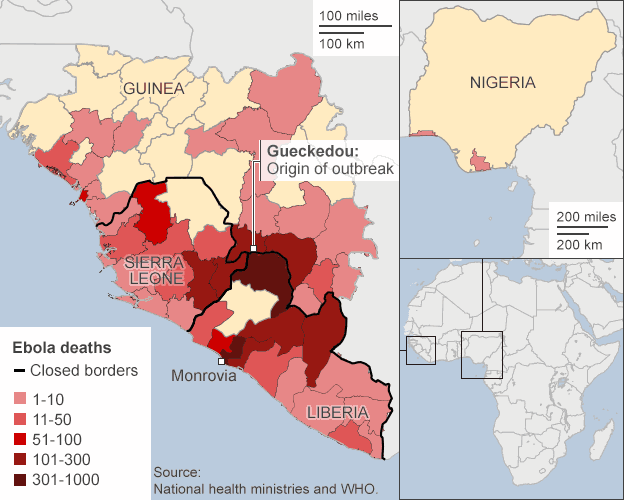A Brief History of Zombies
We’ve all seen at least one movie about flesh-eating zombies taking over (my personal favorite is Resident Evil), but where do zombies come from and why do they love eating brains so much? The word zombie comes from Haitian and New Orleans voodoo origins. Although its meaning has changed slightly over the years, it refers to a human corpse mysteriously reanimated to serve the undead. Through ancient voodoo and folk-lore traditions, shows like the Walking Dead were born.
In movies, shows, and literature, zombies are often depicted as being created by an infectious virus, which is passed on via bites and contact with bodily fluids. Harvard psychiatrist Steven Schlozman wrote a (fictional) medical paper on the zombies presented in Night of the Living Dead and refers to the condition as Ataxic Neurodegenerative Satiety Deficiency Syndrome caused by an infectious agent. The Zombie Survival Guide identifies the cause of zombies as a virus called solanum. Other zombie origins shown in films include radiation from a destroyed NASA Venus probe (as in Night of the Living Dead), as well as mutations of existing conditions such as prions, mad-cow disease, measles and rabies.
The rise of zombies in pop culture has given credence to the idea that a zombie apocalypse could happen. In such a scenario zombies would take over entire countries, roaming city streets eating anything living that got in their way. The proliferation of this idea has led many people to wonder “How do I prepare for a zombie apocalypse?”
Well, we’re here to answer that question for you, and hopefully share a few tips about preparing for real emergencies too!
Some of the supplies for your emergency kit
Better Safe than Sorry
So what do you need to do before zombies…or hurricanes or pandemics for example, actually happen? First of all, you should have an emergency kit in your house. This includes things like water, food, and other supplies to get you through the first couple of days before you can locate a zombie-free refugee camp (or in the event of a natural disaster, it will buy you some time until you are able to make your way to an evacuation shelter or utility lines are restored). Below are a few items you should include in your kit, for a full list visit the CDC Emergency page.
- Water (1 gallon per person per day)
- Food (stock up on non-perishable items that you eat regularly)
- Medications (this includes prescription and non-prescription meds)
- Tools and Supplies (utility knife, duct tape, battery powered radio, etc.)
- Sanitation and Hygiene (household bleach, soap, towels, etc.)
- Clothing and Bedding (a change of clothes for each family member and blankets)
- Important documents (copies of your driver’s license, passport, and birth certificate to name a few)
- First Aid supplies (although you’re a goner if a zombie bites you, you can use these supplies to treat basic cuts and lacerations that you might get during a tornado or hurricane)
Family members meeting by their mailbox. You should pick two meeting places, one close to your home and farther away
- Identify the types of emergencies that are possible in your area. Besides a zombie apocalypse, this may include floods, tornadoes, or earthquakes. If you are unsure contact your local Red Cross chapter for more information.
- Pick a meeting place for your family to regroup in case zombies invade your home…or your town evacuates because of a hurricane. Pick one place right outside your home for sudden emergencies and one place outside of your neighborhood in case you are unable to return home right away.
- Identify your emergency contacts. Make a list of local contacts like the police, fire department, and your local zombie response team. Also identify an out-of-state contact that you can call during an emergency to let the rest of your family know you are ok.
- Plan your evacuation route. When zombies are hungry they won’t stop until they get food (i.e., brains), which means you need to get out of town fast! Plan where you would go and multiple routes you would take ahead of time so that the flesh eaters don’t have a chance! This is also helpful when natural disasters strike and you have to take shelter fast.
Get a Kit, Make a Plan, Be Prepared
If zombies did start roaming the streets, CDC would conduct an investigation much like any other disease outbreak. CDC would provide technical assistance to cities, states, or international partners dealing with a zombie infestation. This assistance might include consultation, lab testing and analysis, patient management and care, tracking of contacts, and infection control (including isolation and quarantine). It’s likely that an investigation of this scenario would seek to accomplish several goals: determine the cause of the illness, the source of the infection/virus/toxin, learn how it is transmitted and how readily it is spread, how to break the cycle of transmission and thus prevent further cases, and how patients can best be treated. Not only would scientists be working to identify the cause and cure of the zombie outbreak, but CDC and other federal agencies would send medical teams and first responders to help those in affected areas (I will be volunteering the young nameless disease detectives for the field work).
To learn more about what CDC does to prepare for and respond to emergencies of all kinds, visit: http://emergency.cdc.gov/cdc/orgs_progs.asp
To learn more about how you can prepare for and stay safe during an emergency visit: http://emergency.cdc.gov/
Are you prepared? Tell us…


 RSS Feed
RSS Feed
